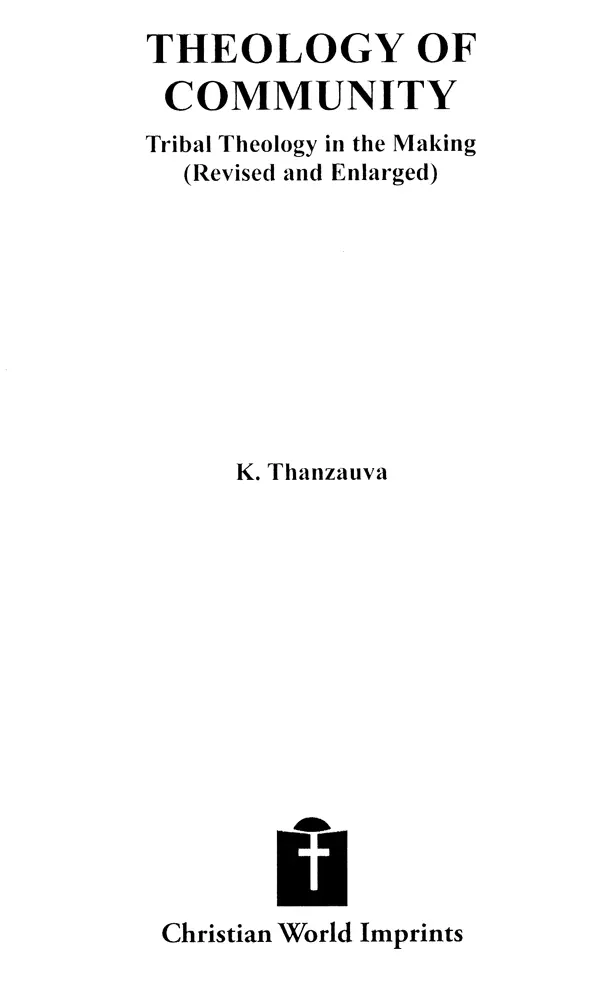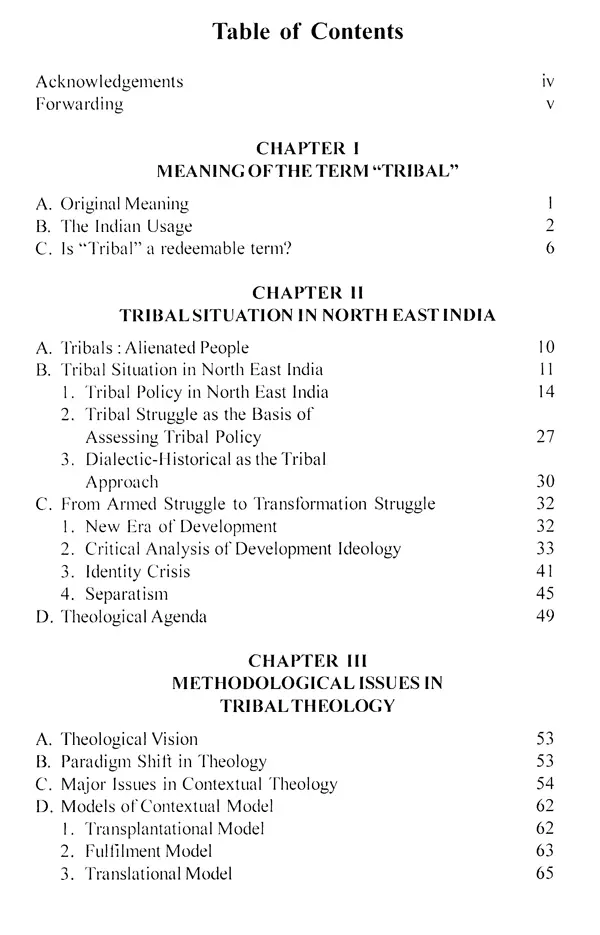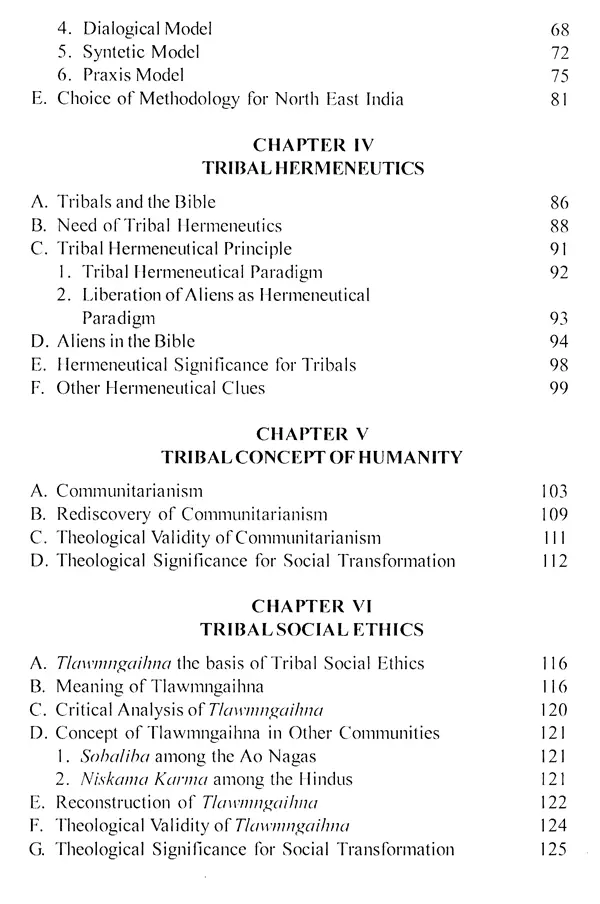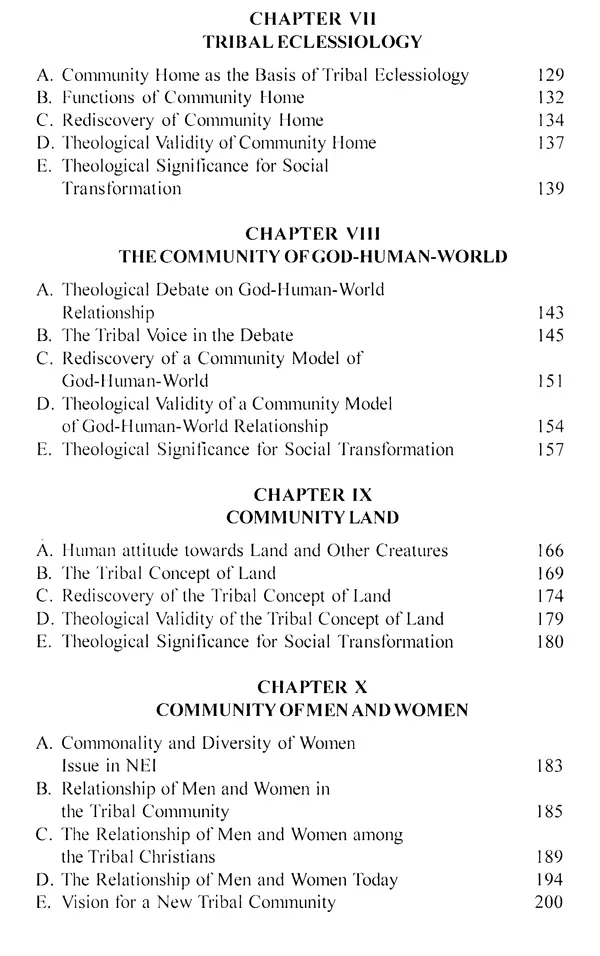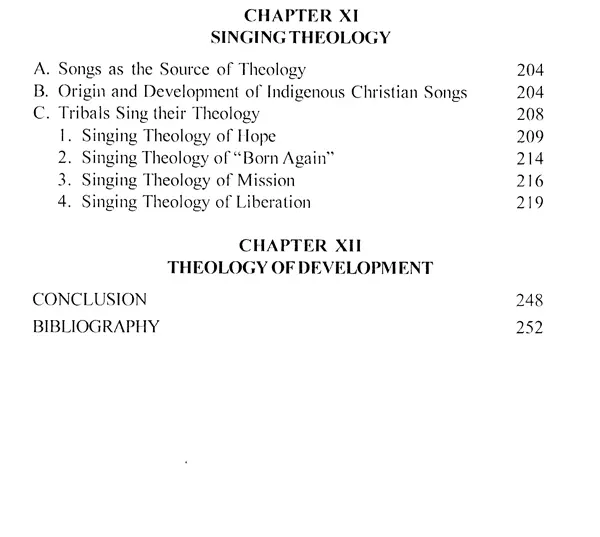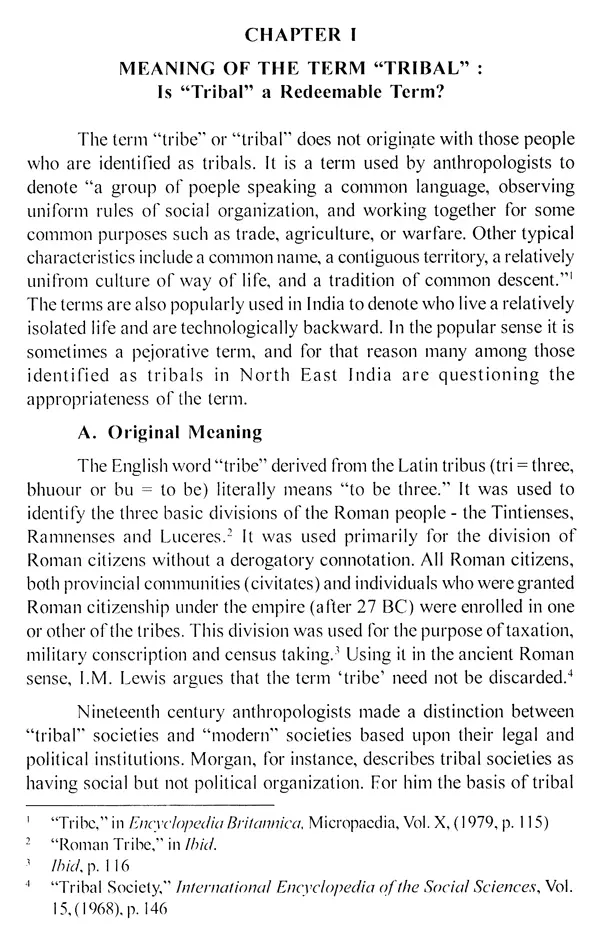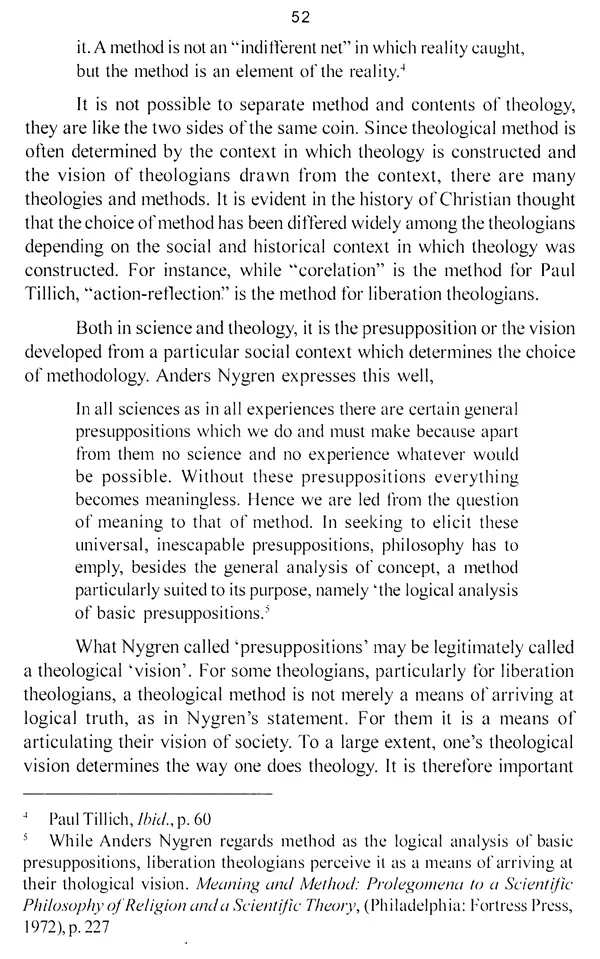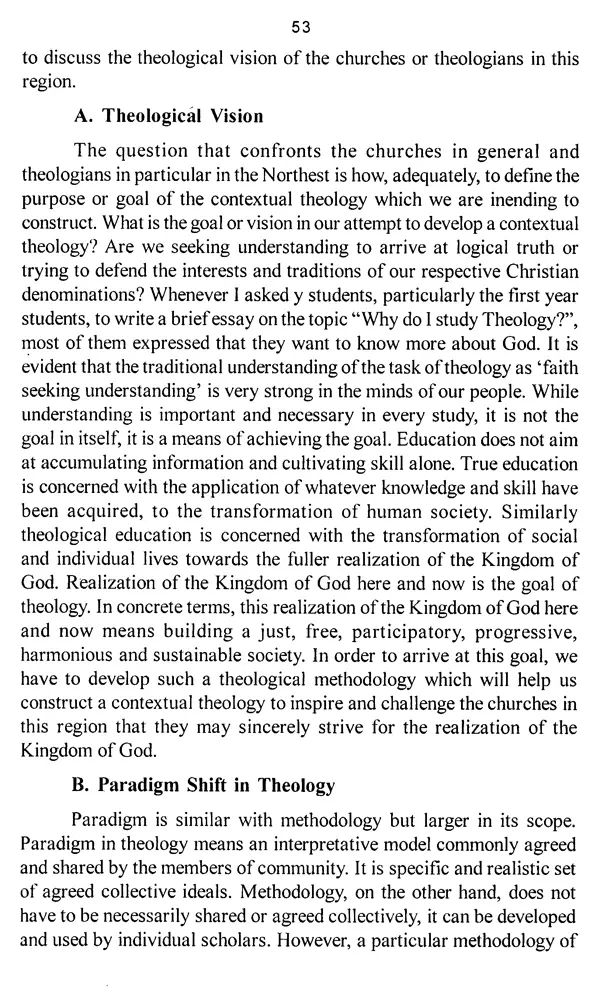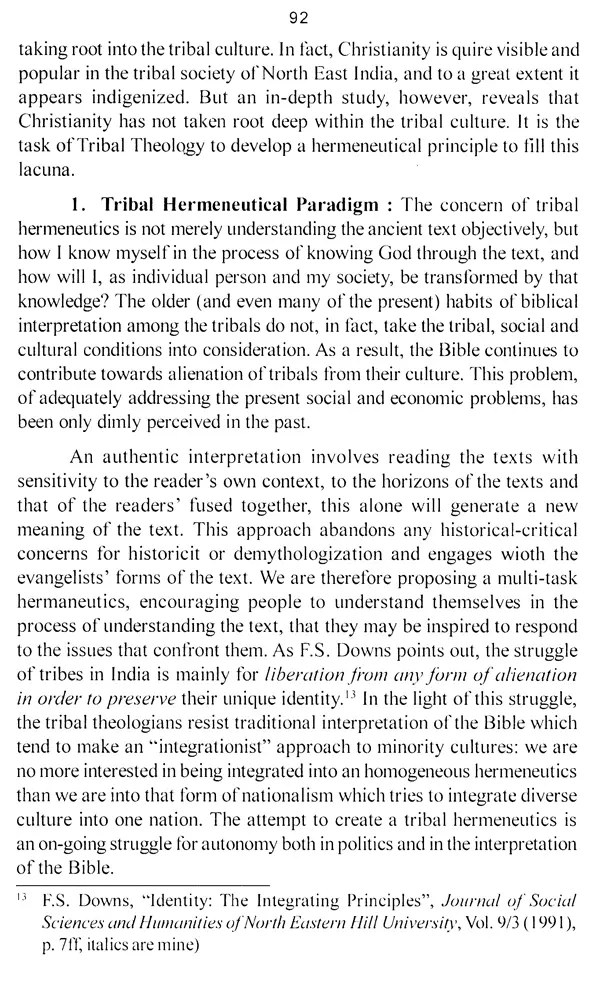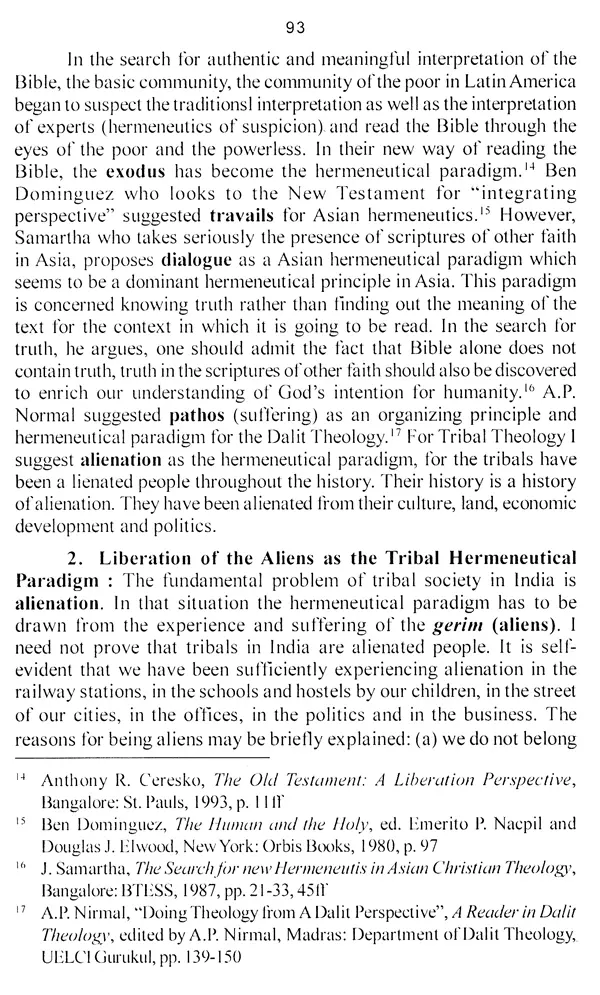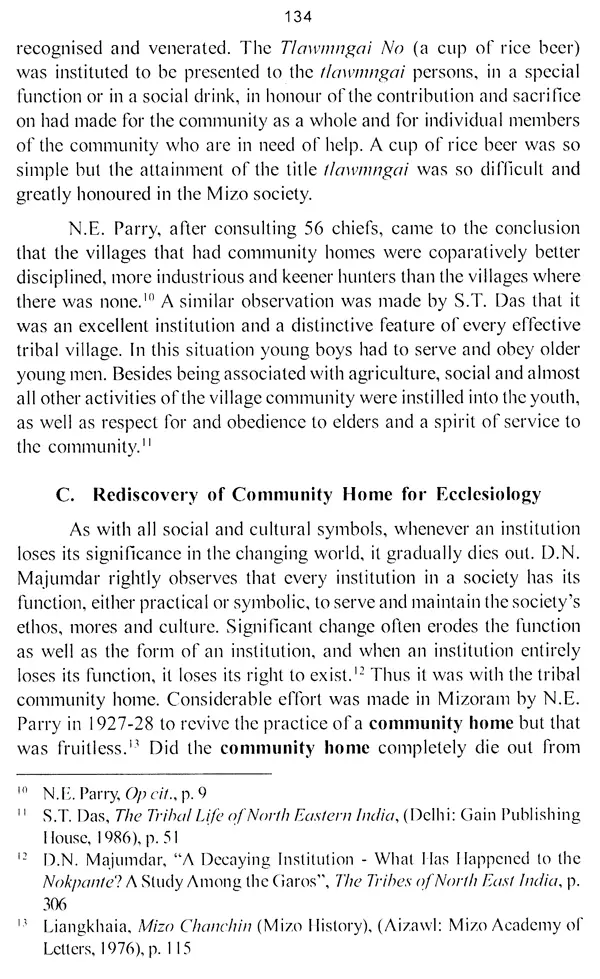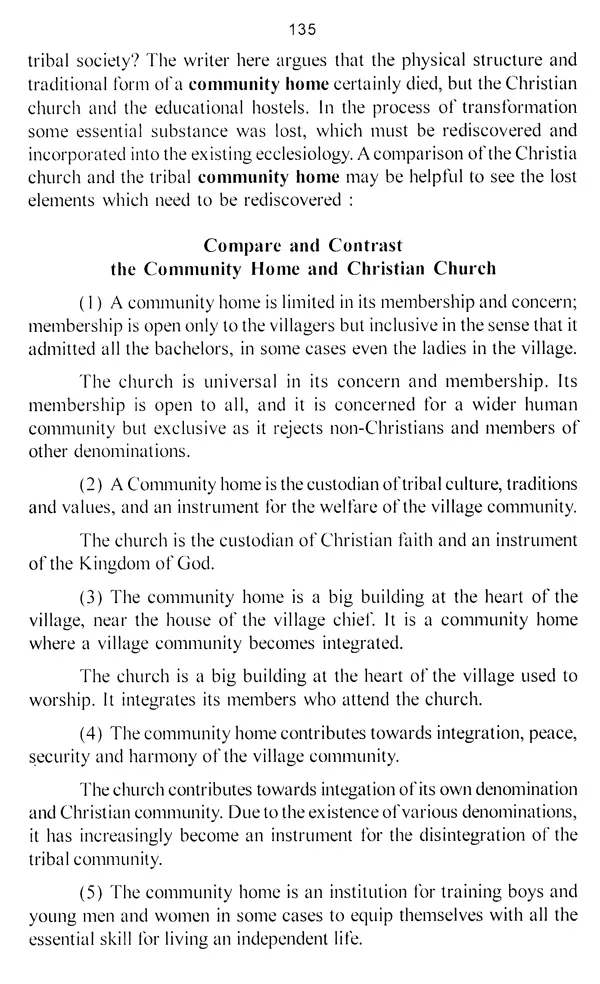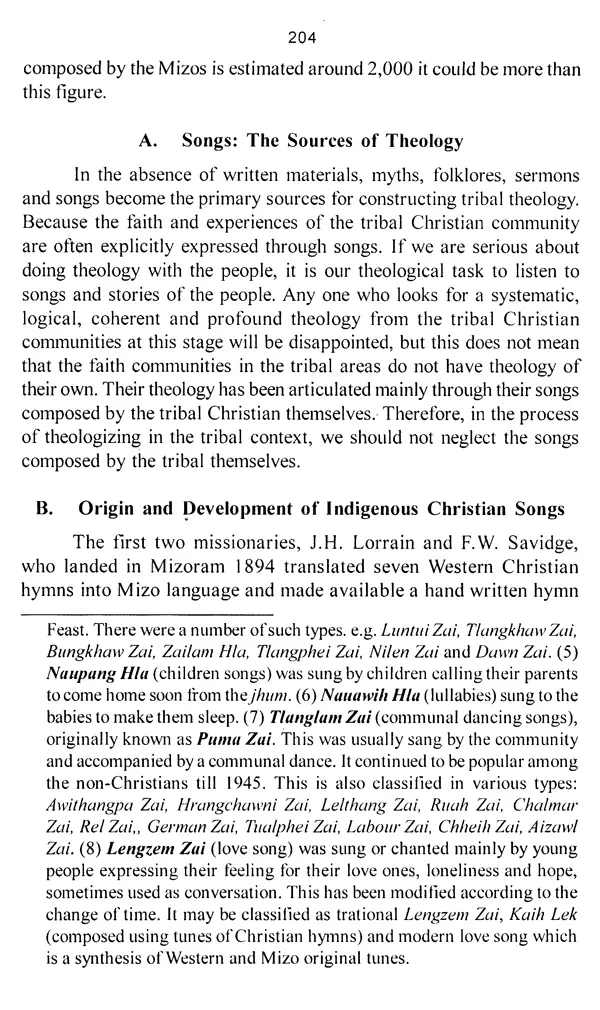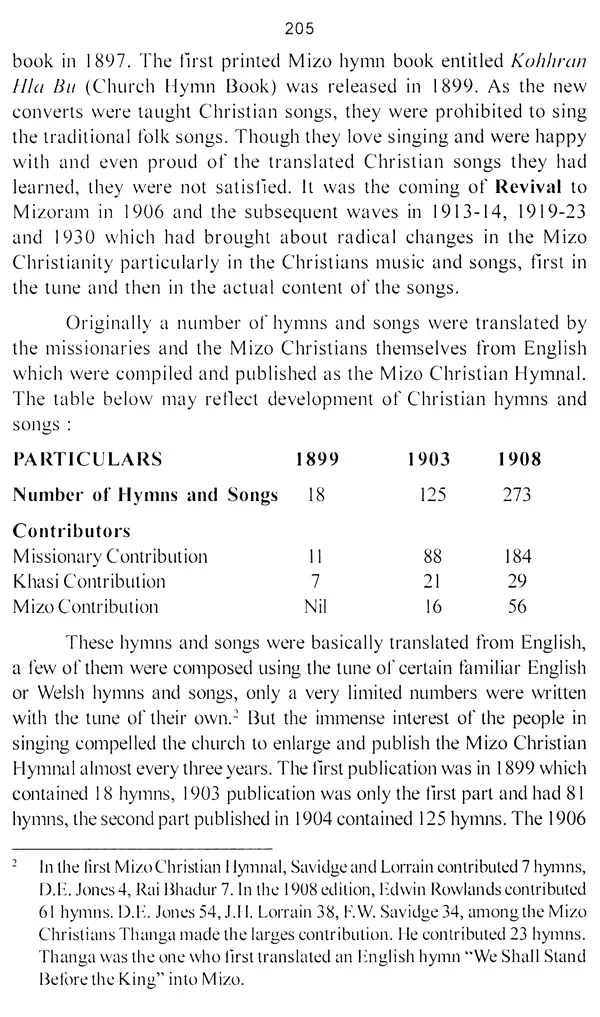
Theology of Community- Tribal Theology in the Making (Revised and Enlarged)
Book Specification
| Item Code: | UAZ976 |
| Author: | K. Thanzauva |
| Publisher: | Christian World Imprints, Delhi |
| Language: | English |
| Edition: | 2022 |
| ISBN: | 9789395457026 |
| Pages: | 307 |
| Cover: | PAPERBACK |
| Other Details | 8.50 X 5.50 inch |
| Weight | 390 gm |
Book Description
The churches in North East India have been taught how to be self-supporting, self-propagating and self-governing, but they have not learned how to be "self-theologizing".
The traditions and experiences of the tribal Christians in North East India have not been theologically reflected Prof. Dr. Thanzauva has made sincere effort to reflect theologically on the cultures, experiences and aspirations of the tribal Christians in North East India. He had edited and published a book entitled "Towards a Tribal Christian Theology The Mizo Perspective in 1989. Since then Zauva has been working on Contextual Theology to develop a Tribal Christian Theology and wrote a Thesis on A Theological Basis for Social Transformation in the Context of North East India which he submitted to the Melbourne College Divinity for his Doctor of Theology.
After he returned from Australia, Zauva joined the Eastern Theological College where he was conferred Professorship and became the first Dean of Post-Graduate and Tribal Studies. He delivered series of lecture on Methodological Issues in Tribal Theology which is incorporated in this book. This book is an outcome of his on-going research on Contextual Theology and teaching at the Post-Graduate and BD levels. This book is a theological reflection from the tribal perspective which is now commonly known as Tribal Theology. A few more books on the subject are yet to appear.
Zauva hails from Mizoram. He was born and brought up in a conservative Christian family and ordained in 1976 by the Baptist Church of Mizoram. He served as a Pastor since 1974 until he joint the Easter Theological College in 1981. He than became the General Secretary of the Baptist Church of Mizoram, the Vice President of the Asian Pacific Baptist Federation and the Vice President of the Commission on Human Rights of the Baptist World Alliance. Presently he is the Director of Greenhill Public School which he founded in 2015.
To have meaning and relevance, theology must be contextual Whether acknowledged or not, this has always been the case. Recognising this fact, many dynamic contemporary theologies begin with an analysis of the context in which they seek to make meaningful God's word to humankind. Because there are many contexts there are similarly many theologies. Some of the more familiar include liberation theology, minjung theology, dalit theology, black theology.
During the past decade there has begun to emerge in North East India a group of theologians seeking to develop a theology that is rooted in their context. Pre-eminent among them is Professor K. Thanzauva. The rapidly growing Christian community in the region is predominantly tribal. The work of developing a theology in this context is complicated by the fact that there are a large number of tribes, each with its own language and culture. It would be difficult and, indeed, undesirable to promote theologies for each of these. That would only tend to enhance the exclusive elements in tribalism that have been so disruptive in the region. In the past Christianity served as a powerful instrument for developing harmonious relationships within and between tribes by affirming universal values. Unfortunately, if often did this by offering European contextual theology as the "universal" Gospel. The lack of theological relevance in North East India today is due in no small measure to the effort to superimpose the theology developed in the European context on the quite different historical and cultural context of this region. For this reason the inherited theology is unable to address the political, social and religious problems of the present time. If Christianity is to be part of the solution to today's problems instead of part of the problem, it must develop a theology that is both rooted in the north-eastern context and affirms the universality of Gospel.
Book's Contents and Sample Pages
